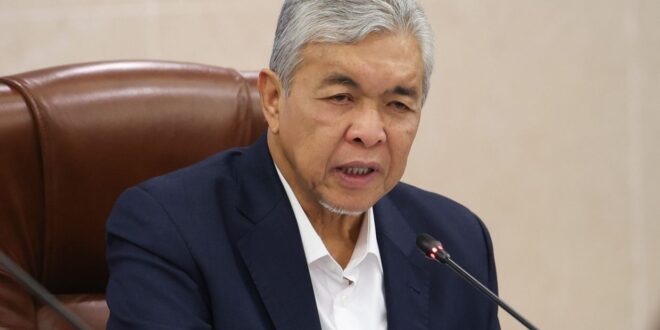PUTRAJAYA: A national endowment (waqaf) to help low income Bumiputra access education and health services are among the three main pledges in the unity government’s new economic agenda for the community.
Another initiative that is part of the administration’s Bumiputra Economic Transformation (TEB) is a specific entity to increase ownership and manage bumiputera lands.
These were announced by Deputy Prime Minister Datuk Seri Dr Ahmad Zahid Hamidi who officially launched the TEB on the first day of the Bumiputera Economic Congress 2024 here on Thursday (Feb 29).
Ahmad Zahid said that the government’s third pledge involved efforts to increase Bumiputra participation in the industrialisation of the food growing sector which will also improve the country’s food security.
ALSO READ : Latest Bumiputra economic agenda will not sideline other communities, says Zahid
“I am confident that these three pledges will be part of our efforts in this congress that I think can boost the Bumiputra empowerment agenda in a decade,” Zahid said in his keynote address.
The TEB is a continuation of the agenda to uplift the socio-economic status of the community that was started since the 1960s and is part of the unity government’s over-arching Madani Economic framework.
The three pledges form a part of the TEB’s main components, which include three goals and six commitments.
The first goal, termed socio-economic justice, was to ensure that the community was not left behind others in terms of professional, educational and commercial achievements, Zahid said.
ALSO READ : Experts pin hope on coming bumi congress to drive effective change
Currently, only 29% of Bumiputra are classified as skilled workers, while the number of Bumiputra-owned corporations that have been publicly listed are still not satisfactory, he added.
The TEB’s second aim is to increase the ability of Bumiputra businesses to be dynamic and adapt to a new era of diverse challenges such as geo-political conflicts, pandemics and climate change disruptions, Zahid said.
“We must also be brave in breaking into overseas markets. We should not just be dependent on the domestic market but go out to the world market which is estimated to be worth US$5 trillion by 2030.”
The TEB’s third goal is to ensure that the agenda results in national prosperity because when the Bumiputra community, which forms more than 60% of the population, does well, everyone benefits, he said.
“National prosperity is dependent on economic growth. The TEB’s programmes not only help entrepreneurs but stimulates activities for the country’s economic eco-system.”
 BeritaKini.biz Berita Viral Terkini di Malaysia
BeritaKini.biz Berita Viral Terkini di Malaysia





